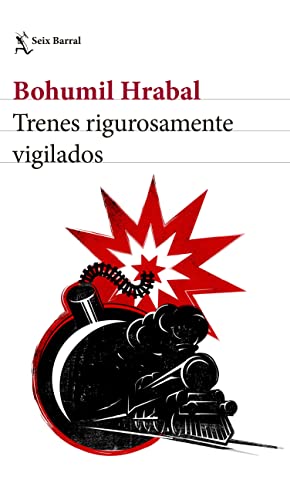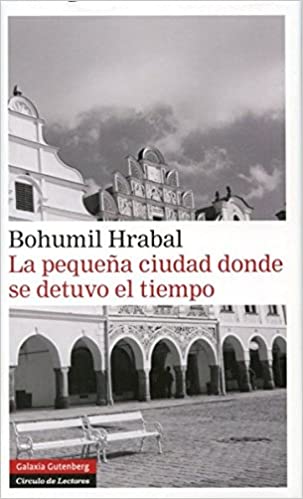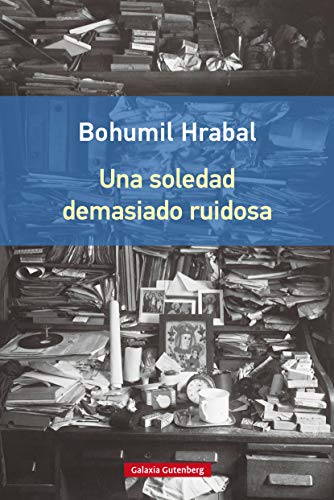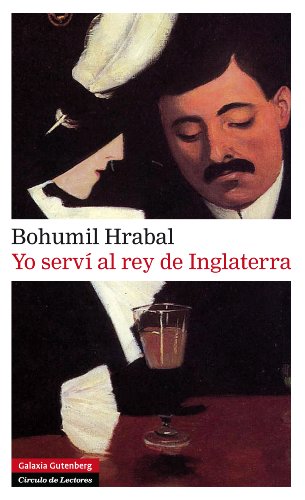One is old enough to remember that Czechoslovakia drawn on school geography maps. A country with oscillating borders between the so-called great war and what really was even bigger. In the midst of all this, an alienated territory, as if detached from old empires in an impossible puzzle.
That was the birthplace of fascinating storytellers like Milan Kundera or Bohumil Hrabal. And surely from their childhoods located between tensions on one side and the other, between nationalisms always at odds, filled everything with its location as a bridge between Europe and Russia, the impressions passed to the narration of both provide very juicy visions of the existential in the midst of a constant threat of disaster.
The Czech city of Brno saw the birth of two enormous Czech writers of the 20th century. My predilection for the second being greater, it must be recognized that it also Hrabal gave a good account of his time through his narrative proposal. An idea of writing in search of creative resilience in the face of the effort for the self-destruction of a Europe brimming with war conflicts. Wars in hot, or in cold, settled over the subsequent decades until the fall of the wall.
In his works those contrasts are awakened of those who intend to awaken humor but who also ends up delving into the wounds. At times through his melancholic personalities and at others by posing alienated scenarios, in tune with that strange evolution of so many dark days of the XNUMXth century.
Loaded with the imagination as the main creative tool, any of his plots overflows with rhythm and allegorical resources, metaphors that last throughout his novels, alternative worlds that may not always come to be.
Top 3 recommended novels by Bohumil Hrabal
Rigorously guarded trains
The point of tragicomedy about the Second World War will always be engraved in the general imagination with the film "Life is Beautiful" by Benigni.
This much earlier novel already overflowed with imagination to explain that, that life always ends up making its way through the most perverse evil. In a village bordering Germany, the train station becomes the setting for its own employees to become a resistance group. Capitalizing on the focus of the story, Milos, a young man with more hormonal concerns, finds himself fully involved in the group's primary objective, boarding an arms convoy to render it useless.
A plan full of risks in which young Milos can become the hero with whom to conquer his particular Dulcinea, the station's telegrapher.
The little town where time stopped
A story with that paradoxical feeling of melancholy like the happiness of sadness. The narrator's life moves in the inertia of a nondescript town that one and the other, Nazis and Soviets pass through.
While the first ones are there, the brewery in which every man capable of using his hands works is still there, moving along. Among the workers are the father of the narrator protagonist and his uncle Pepín, who becomes the narrator's particular hero. Because in Pepín his nephew sees the most relevant of heroes, the one who knows how to survive with short-sightedness, on a day-to-day basis, drinking if necessary and enjoying the carnal until the moment can come in which one or the other of the invaders, decide about the life of Pepín, or his father or the protagonist himself, with the improvisation of the hard times that are going on.
Too noisy loneliness
Hanta is hope in the face of barbarism. Contrary to what one might think of his job as a recycler of paper from awkward books, he collects all the information that can be destroyed in the process. You only need to accompany him on a walk through Prague to discover in his musings how everything destroyed, all that paper intended to house, black on white, the right ideas (or who knows if it even serves as scrolls for domestic uses), never disappears from the all thanks to Hanta.
In the continuous hyperbole around the ideas of authoritarianisms against culture, an emotional side is awakened around all creation lost by the impositions of according to what times and according to what regimes. The voices of the great thinkers who seek to be silenced survive in Hanta. To the point that Hanta seems to listen to Kant or Hegel, and even seems to want to become the superman of Nietzsche, ready to hand over all the bitterest wisdom and lucidity to good old Hanta.
Other recommended books by Bohumil Hrabal
I served the king of England
In the 1930s, in Prague, a young waiter's apprentice, Jan, gets his first job willing to become a hotel owner and join the select millionaires' club. Smart and ambitious, everything will be subject to success and social recognition. But Jan's point of view is often wrong: he marries a German woman who worships Hitler just as Nazi troops enter Prague, and becomes a millionaire just as communism settles in his country.
With a brilliant sense of humor and hilarious scenes, Hrabal tells us about the picaresque adventures of the young waiter who, like the good soldier Svejk, exposes the absurdity of everyday life and the characters he meets. Like Svejk, Jan's apparent idiocy hides a keen intelligence that allows him to survive the most dramatic historical events of the XNUMXth century: the Nazi invasion of his country, World War II, and the advent of communism.




